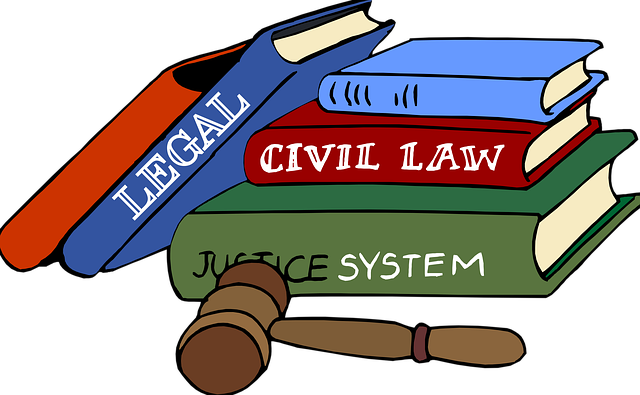Complex child support cases require specialized legal support due to financial complexities, varying income levels, shared custody, and international jurisdiction issues. Attorneys specializing in child support offer crucial guidance, interpreting financial documents, forecasting maintenance obligations, and negotiating fair agreements that prioritize children's best interests while respecting parental rights. Alternative Dispute Resolution (ADR) methods like mediation and arbitration provide efficient, collaborative solutions, reducing conflict and emotional strain. Long-term planning through regular order reviews ensures adaptability to life changes, maintaining fairness and minimizing legal disputes. Legal support for parents is essential for navigating these complexities and achieving positive outcomes.
“Navigating complex child support matters can be a challenging yet essential process for parents seeking fair arrangements. This comprehensive guide delves into the unique dynamics of these cases, offering insights on understanding and resolving them effectively. From recognizing the challenges of high-conflict situations to exploring alternative dispute resolution methods, this article equips parents with knowledge. We examine various legal options, emphasizing the crucial role of professionals in facilitating resolutions. Discover strategies for financial transparency, long-term planning, and regular reviews to ensure every aspect of child support is managed optimally.”
- Understanding Complex Child Support Cases: Challenges and Unique Dynamics
- Navigating Legal Options: Types of Child Support Arrangements
- The Role of Legal Professionals in Facilitating Resolutions
- Alternative Dispute Resolution (ADR) Techniques for Efficient Outcomes
- Financial Disclosure and Transparency: Ensuring Fairness and Compliance
- Long-term Planning and Regular Reviews: Adapting to Life Changes
Understanding Complex Child Support Cases: Challenges and Unique Dynamics

Complex child support cases often present unique challenges and dynamics that set them apart from typical family law disputes. These matters involve intricate financial calculations, varying income levels, shared custody arrangements, and sometimes even international jurisdiction issues. Each case is uniquely shaped by the specific circumstances of the parents involved and the well-being of their children.
Navigating these complexities requires a deep understanding of both the legal framework and the personal situations at hand. Legal support for parents in such cases should focus on providing clear guidance, meticulous record-keeping, and strategic planning. Attorneys specializing in child support must be adept at interpreting financial documentation, forecasting maintenance obligations, and advocating for fair outcomes that consider the best interests of the children while respecting the rights of both parents.
Navigating Legal Options: Types of Child Support Arrangements

Navigating complex child support matters requires understanding various legal options designed to provide the best outcome for both parents and children involved. Types of child support arrangements include sole custody, joint custody, and shared parenting plans. Each option has its own set of considerations, including financial commitments, scheduling, and the emotional well-being of the child. Legal professionals specializing in family law can offer crucial guidance on these matters, ensuring that all aspects are carefully reviewed and tailored to fit unique circumstances.
Seeking legal support for parents is essential when dealing with intricate child support cases. These experts can help negotiate fair agreements, manage modifications, and represent interests in court if needed. Their knowledge of state laws and their ability to advocate on behalf of clients streamline the process, potentially saving time and money while prioritizing the best interests of the child.
The Role of Legal Professionals in Facilitating Resolutions

When faced with complex child support legal matters, the role of professional legal support for parents cannot be overstated. Attorneys and mediators play a crucial part in facilitating resolutions that are fair and beneficial for all parties involved. They provide guidance tailored to each unique situation, ensuring that laws and regulations are accurately interpreted and applied. Legal professionals also help navigate the intricate processes, offering strategic advice and negotiating solutions that address financial obligations, custody arrangements, and the best interests of the child.
These experts have the knowledge and experience required to identify potential pitfalls and leverage favorable outcomes. They foster open communication between parents, helping them understand their rights and responsibilities. By utilizing legal support for parents, complex cases can be resolved more efficiently, minimizing the emotional and financial strain on all individuals concerned.
Alternative Dispute Resolution (ADR) Techniques for Efficient Outcomes

In complex child support cases, Traditional litigation can be time-consuming and emotionally draining for all parties involved, especially children. Alternative Dispute Resolution (ADR) techniques offer a more efficient and collaborative approach to resolving these legal matters. Methods like mediation and arbitration provide a platform for open communication between parents, allowing them to negotiate terms that best suit their unique circumstances while prioritizing the well-being of their children.
ADR offers several advantages over litigation. It fosters a sense of control and ownership over the outcome for both parents, potentially reducing conflict and fostering a more cooperative environment. Furthermore, these processes can be significantly faster and less costly than court battles, providing much-needed relief to families navigating legal support for parents. By focusing on mutual agreement rather than adversarial outcomes, ADR techniques aim to create lasting solutions that positively impact the entire family.
Financial Disclosure and Transparency: Ensuring Fairness and Compliance

In complex child support cases, financial disclosure and transparency are paramount to achieving fairness and compliance with legal requirements. Parents involved in such disputes must provide accurate and complete financial information to ensure that every aspect of their financial situation is considered in determining child support obligations. This includes disclosing assets, income sources, and any significant changes in financial circumstances since the last assessment. Legal support for parents plays a crucial role in guiding them through this process, ensuring they understand their obligations and rights, and helping them navigate the complexities of financial disclosure.
Transparency fosters trust between all parties involved, including parents, legal representatives, and the court. It allows for a thorough evaluation of each parent’s ability to contribute to their child’s financial needs. By promoting openness, the system can better accommodate unique situations, such as unreported income or unexpected expenses, ensuring that the final support order is fair and in line with the law. This transparency is essential for maintaining the integrity of the legal process and ultimately benefiting the child whose best interests are at the heart of these matters.
Long-term Planning and Regular Reviews: Adapting to Life Changes

In complex child support cases, long-term planning is essential as it allows both parents to adapt and navigate life changes effectively. Regular reviews of the support orders are crucial to ensure that they remain fair and in line with current circumstances. As children grow older, their needs evolve, and parental situations can shift due to career changes, relocations, or new relationships. A well-structured plan accounts for these dynamics, providing a sense of stability for the child while facilitating open communication between parents.
Legal support for parents plays a pivotal role in this process by offering guidance on modifications to support agreements. Regular reviews facilitate early identification of any discrepancies or challenges, enabling parents to collaborate and make necessary adjustments promptly. This proactive approach not only reduces potential legal disputes but also ensures that the child’s best interests are maintained throughout their development.






